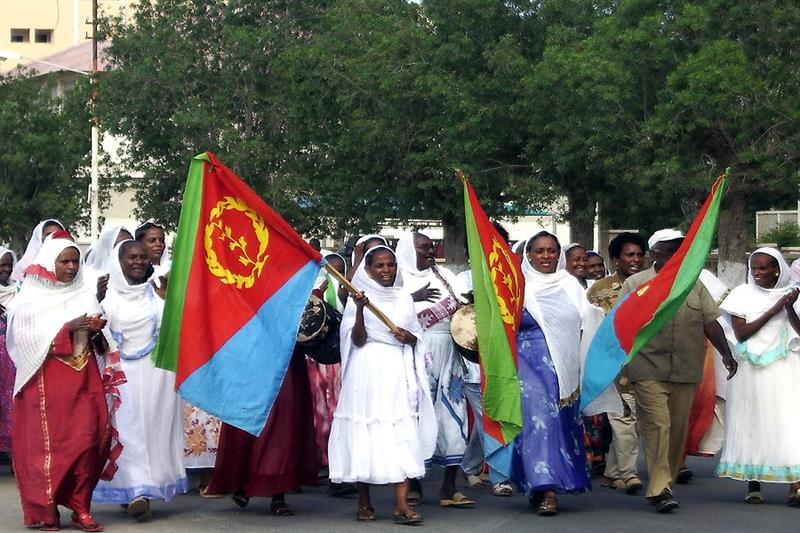
Eritrea, which is widely considered to be one of the world’s most repressive states, marks three decades of independence on Wednesday.

Here are five things to know about the impoverished Horn of Africa nation which has only ever been ruled by one man — Isaias Afwerki.
Rights catastrophe
There have been no elections in Eritrea since the country formally declared independence on May 24, 1993, two years after it was liberated from Ethiopia.
Under Isaias, the authorities crack down on any political opposition and stand accused of arbitrary arrests and detention without trial.
It is a “one-man dictatorship” with no legislature, no independent civil society organisations and no independent judiciary, says Human Rights Watch.
Independent media has been banned since 2001 and religious freedom is curtailed.
The regime’s oppression as well as lengthy compulsory national service, which rights activists say amounts to slave labour for the state, have pushed hundreds of thousands to flee.
30-year war for independence
An Italian colony from 1890 to 1941, the Red Sea nation became a British protectorate after Italy’s defeat in World War II.
In 1952 it was joined in a federation with Ethiopia, which 10 years later annexed the smaller territory as a province.
Eritrea launched a war for independence that lasted nearly 30 years.
In 1991 Eritrean rebels, who helped overthrow the Marxist regime of Ethiopian Colonel Mengistu Haile Mariam, seized the Eritrean capital Asmara.
They installed a government and achieved full statehood in May 1993 after an independence referendum, with the blessing of the Ethiopian authorities.
But the move deprived Ethiopia of its only outlet to the Red Sea, and five years later, border disputes blew up into a war between the two nations.
The 1998-2000 conflict left about 80,000 people dead and 1.3 million displaced.
Milestone peace deal
In 2018, Ethiopian Prime Minister Abiy Ahmed shocked the world by accepting the demarcation of his country’s border with Eritrea set by an independent international commission in 2002.
The rapprochement allowed the reopening of embassies in Asmara and Addis Ababa as well as the re-establishment of air links and telephone lines.
It also won Abiy the Nobel Peace Prize.
War in Tigray
In November 2020, Abiy sent troops into Tigray in northern Ethiopia, in response to what he said were attacks on federal army camps by the Tigray People’s Liberation Front, the regional ruling party which dominated Ethiopia’s government until 2018.
Eritrean troops supported Ethiopian forces during the two-year war against the TPLF, a longstanding enemy of Asmara.
Eritrean soldiers were accused of brutal atrocities against civilians during the war, including massacring hundreds of people, and were sanctioned by the United States in 2021.
But at a rare press conference during a visit to Kenya in February 2023, Isaias dismissed the allegations as “a fantasy”.
Abiy’s government signed a peace deal with the TPLF in November 2022 to end the two-year war, but Eritrea was not a party to the agreement.
The US said in January that Eritrean forces were engaged in an “ongoing withdrawal” from Tigray, but a UN report presented to the Human Rights Council in Geneva in March said the withdrawal remained “very slow and largely incomplete”.
Access to Tigray is restricted, and it is impossible to verify independently whether Eritrean troops have indeed left the region.
Corruption and poverty
Eritrea is classified by the United Nations as one of the world’s least developed countries. It ranks 176th out of 191 countries on the UN’s human development index (2021).
It is also one of the most corrupt countries in the world, ranked 162nd out of 180 in 2022 by Transparency International.
The country has never conducted a census, but various estimates place the population between three million and six million.
Its main sources of wealth include gold, copper and zinc mines.
There are nine ethnic groups and a roughly even spread between Christians and Muslims. There is no official language but Tigrinya, Arabic and English are used most frequently.
Asmara, a quiet city of sidewalk cafes and picturesque villas, was in 2017 designated a UNESCO World Heritage Site for its colonial Italian modernist architecture.